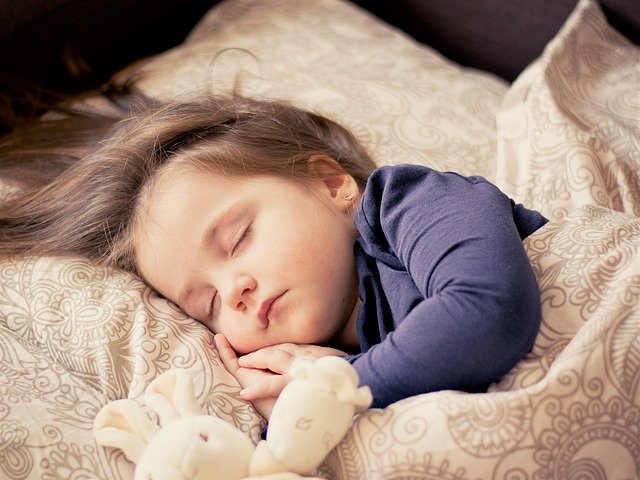
Sleep plays a key role in children’s development and health. However, currently kids’ sleep time is steadily declining. Studies show that 20 -30 % of kids have sleep problems, and 70% of them experience at least one sleep problem a few nights a week.
While a small group of kids have intrinsic sleep disorders and need medical attention, most presents behavioral sleep problems, including bedtime problems (i.e. difficulties start sleeping), nighttime waking, early morning waking, etc.
Even a small sleep problem can affect kids’ emotion and cognitive function. Moreover, the stress caused by the sleep problems can influence parents and families.
In a recent review published in Sleep Medicine Reviews, researchers provide advice for parents whose kids have sleeping problems.
Here are the ABCs of sleeping:
Sleep time: the National Sleep Foundation recommends that toddlers (1-2 years old) should obtain 11-14 hours of sleep, preschoolers (3-5 years old) obtain 10-13 hours of sleep, and school-children (6-13 years old) obtain 9-11 hours of sleep. In addition, children should go to bed no later than 9 pm.
Schedules and routines: parents should establish routines at bedtimes for kids. Bedtime routines include a bath, a simple massage, story-telling, saying goodnight, giving a kiss/hug, and softly singing. In addition, children should have consistent time for homework, mealtimes, and leisure activities.
Location: kids should have a comfortable bed in a familiar bedroom where they can consistently go and lie down to sleep. The bedroom should be free from exciting and distracting stimuli. When kids fall asleep, the bedroom should be dark, cool, and quiet.
No electronics in the bedroom or before bed: researchers suggest that electronic devices, such as smartphones, tablets, computers, iPods, TVs, should be kept out of the bedroom. In addition, kids should stop using them 1 hour before sleep.
Exercise and diet: it is recommended that kids have physical activities everyday. The activity should not be too close to bedtime (e.g., 1-4 hours before bedtime) because they need to relax before sleep. In addition, kids should have limited caffeine and a healthy diet. Finally, they should not go to bed hungry or too full before sleep.
Positivity and relaxation: parents should have a positive attitude towards sleep, and the atmosphere at home should be positive. Parents should not engage kids in fun, exciting, or frustrating activities before bed. Kids should have a positive and calm mood before sleep.
Independence when falling asleep: kids need to learn to sleep in their own beds without their parents, so that they do not become dependent on parents to fall asleep at bedtime or after night waking.
Needs met during the day: kids’ emotional and physical needs should be met during the day. This means there should be security in family relationships, and kids should maintain emotional wellbeing.
Researchers suggest that parents should try their best to help their kids sleep well. This is very important for kids’ body and mental health and development.
Citation: Allen SL, et al. (2016). ABCs of SLEEPING: A review of the evidence behind pediatric sleep practice recommendations. Sleep Medicine Reviews, 29: 1-14. doi: http://dx.doi.org/10.1016/j.smrv.2015.08.006
Figure legend: This Knowridge.com image is for illustrative purposes only.



